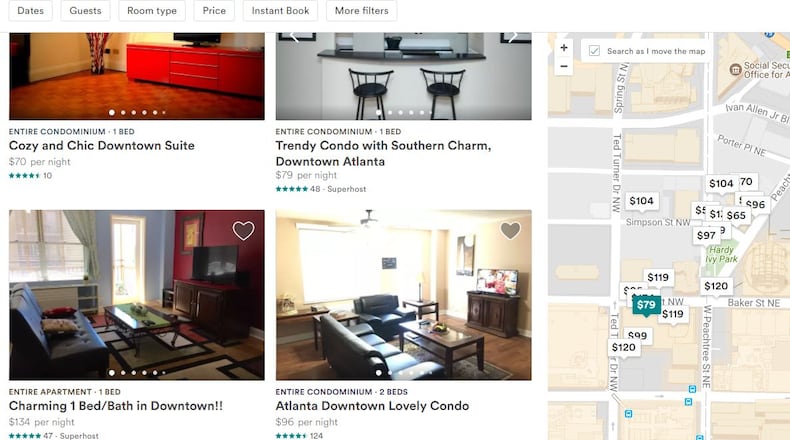With Airbnb and other short-term rental services becoming a rapidly growing industry, a Marietta lawmaker wants to make sure the flourishing businesses aren’t regulated out of business in Georgia.
State Rep. Matt Dollar said since the industry is not going away, legislators need to define a statewide framework for how the businesses should operate.
Earlier this year, Dollar introduced legislation that would keep local governments from banning the short-term rental businesses.
Savannah already has restrictions in place for short-term rentals, which the city defines as renting a home for less than 30 days at a time. The regulations include, among other things, only allowing the rentals in certain parts of the city and ensuring that no more than 20 percent of the homes in areas such as the historic district are available for rent at a time.
As written, Dollar’s legislation would repeal the laws Savannah has in place.
“As this becomes a bigger issue, I believe that more locals are going to start putting forth guidelines, restrictions (or) bans,” the Republican said.
During a hearing Monday on the bill, Georgia Hotel and Lodging Association Executive Director Jim Sprouse told Dollar that it would be unfair if businesses such as Airbnb go unregulated.
“Often these companies are seeking to operate illegal hotels in Georgia and do not pay taxes or are subject to regulations while their profits surge,” Sprouse said.
Sprouse also said a search of Airbnb’s website found that of the 330 units in Peachtree Towers Condominiums in Atlanta, 116 were available as short-term rentals.
Brandon Hatton, a lobbyist for Airbnb, spoke in support of Dollar’s legislation. He said officials are working with local jurisdictions to ensure hosts pay taxes on their income from the company. Hatton rejected the idea that hosts use the website to operate pseudo-hotels.
“The average Airbnb hosts are individuals who are hosting (in) a spare bedroom,” he said. “They maybe have one spare property they use for a vacation-rental-style home.”
Hatton also said Airbnb was open to charging Georgia’s $5-per-night hotel fee, something that Sprouse pointed out as an issue with short-term rental companies.
Andrew McConnell, a co-founder and CEO of Rented.com, said there is such demand for places to stay, businesses such as Airbnb are not taking money away from hotels. His company pairs short-term property owners with professional rental managers.
“In recent years, the average revenue per room in Georgia hotels has outpaced inflation and is growing over 2 percent a year,” he said. “So even as Airbnb and these others come to the forefront, it’s not really taking any dollars out of the pockets of these local hotel owners.”
While Georgia Municipal Association lobbyist Michael McPherson said he opposes Dollar’s bill as it’s written, he said legally defining “short-term rental properties” would be a step in the right direction. He also suggested setting a limit on the number of times a host rents out a property each year could help his organization support the proposal.
How ever the legislation evolves, McPherson said his group maintains that local governments should control regulation of the businesses.
Dollar said he will take input from interested parties through the end of the year.
About the Author





